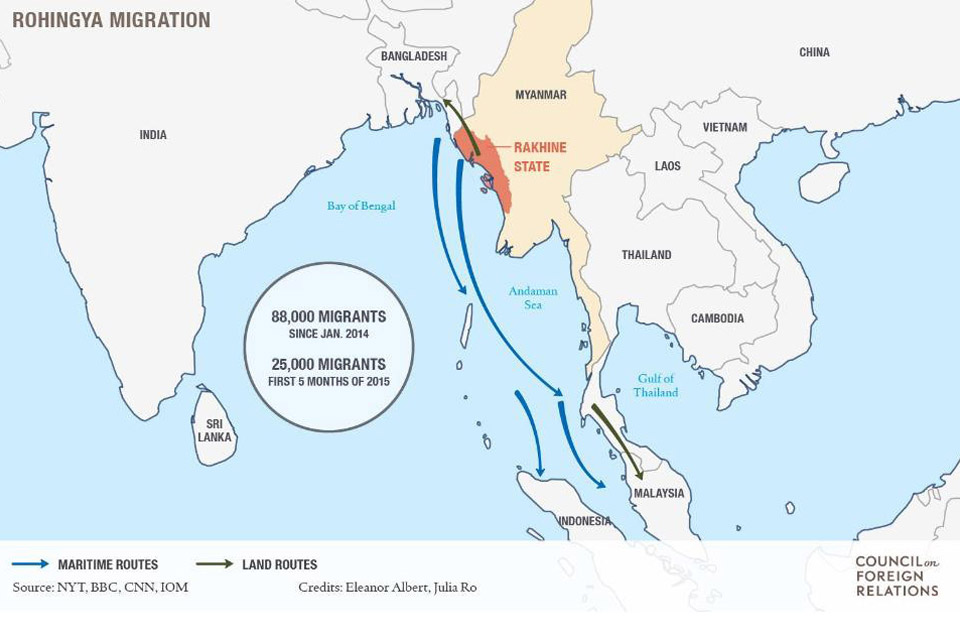Why in news?
Myanmar has recently increased military deployment in the northern Rakhine area as part of its counter-insurgency efforts against Rohingyas.
Who are Rohingyas?
- The Rohingya are an ethnic Muslim group in the majority Buddhist country
- They reside predominantly in Rakhine state and speak a Bengali dialect.
- They are not recognised by the Myanmar government as an official ethnic group and are therefore denied citizenship.
- While it is claimed that there were no Rohingyas in Myanmar before the British brought ‘Bengalis’ to Burma, there is sufficient evidence to show for the Rohingyas’ pre-existence.
- They are often said to be the world's most persecuted minority.

What is the recent problem?
- In the past ten months alone, nearly 100,000 more Rohingyas have been displaced, with three-fourths of them seeking refuge in Bangladesh and India.
- The fundamental reasons for the violation of the human rights of the Rohingyas.
- They suffer "mass atrocities" perpetrated by security forces in the northern part of Rakhine state.
- There has been no effective international pressure to roll back such policies.
- Neighbouring countries like Bangladesh, India and Indonesia have raised the issue with Myanmar only when the refugees became economically burdensome.
How is India affected by this issue?
- Migration - In India, there are nearly 40,000 Rohingya refugees, with 16,500 registered with the office of the United Nations Human Rights Commissioner.
- Islamic extremism - Efforts of radical Islamists to influence some of the Rohingya youth, to capitalise on the situation and promote anti-India activities is possible
- Political tensions - They are spread over several cities and states Jammu, New Delhi, Jaipur and some places in Uttar Pradesh, West Bengal and the north-east.
- There are a few places in the country where politically instigated attempts are being made to re-locate them.
- North-East security - India has a stake in the security conditions in upper western Myanmar adjoining the Naga self-administered zone where the Khaplang faction of the National Socialist Council of Nagalim operates.
What should be done?
- Short-term Indian financial assistance for better rehabilitative measures in Rakhine may not be effective in the present circumstances.
- India's diplomacy need to induce Myanmar to take actions of its own political stability, internal security and social harmony.
Source: IDSA
